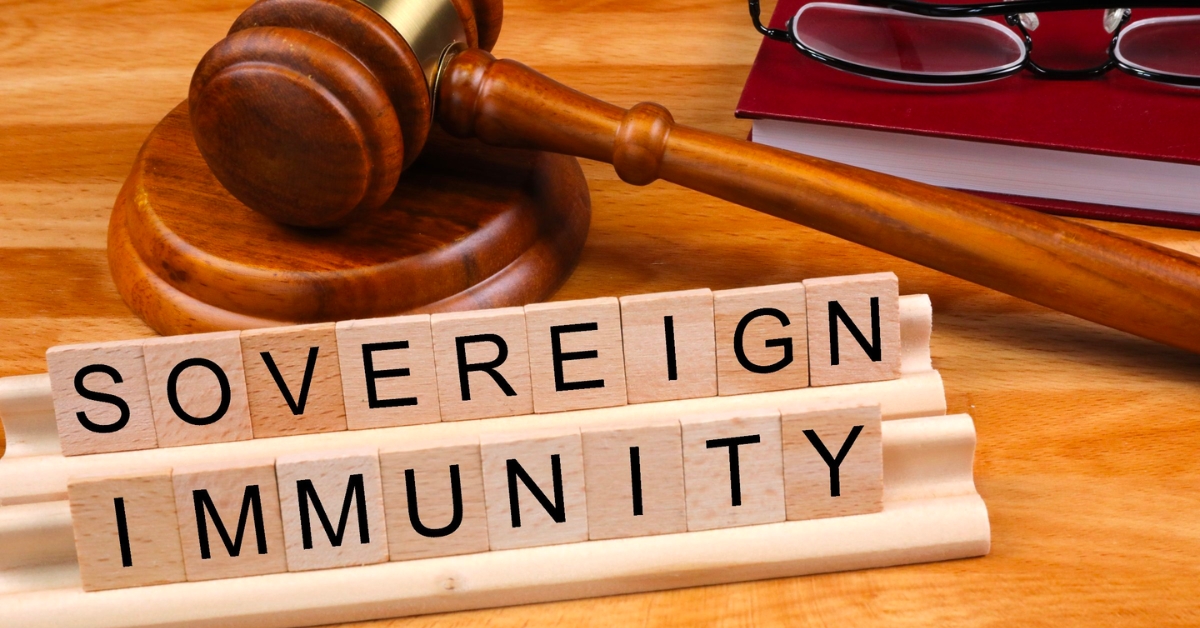Iran took a bold step by filing a lawsuit against Canada at the International Court of Justice (ICJ). Iran’s challenge focuses on Canada’s terrorism designation and a law letting individuals sue Iran in Canadian courts for terrorism injuries.
Contents
Iran argues this violates international law. This challenge targets the terrorism exception in sovereign immunity, impacting global law.
If Iran succeeds, it could significantly affect plaintiffs’ ability to enforce judgments against state sponsors of terrorism. This could lead to limits on targeted assets. This outcome might reshape how international law works, impact diplomacy, and prompt discussions about balancing state immunity and combating terrorism.
The Terrorism Exception and Sovereign Immunity
Iran’s application to the ICJ is built upon its argument that a series of measures undertaken by Canada, particularly the Justice for Victims of Terrorism Act (JVTA) passed in 2012, infringe upon its sovereign immunity under customary international law.
The JVTA amends Canada’s State Immunity Act, introducing an exception to immunity for cases related to terrorist activities. This law permits individuals who have suffered injuries due to terrorist acts to bring civil suits in Canadian courts, provided certain conditions are met.
A primary point of contention is that this exception can be applied only against foreign states or entities designated as terrorists by the Canadian government.
This approach parallels the United States’ Foreign Sovereign Immunities Act (FSIA) and, consequently, has been viewed as targeting Iran’s agencies and instrumentalities.
The Central Issue: Does the Terrorism Exception Violate Customary International Law?
At the heart of Iran’s case is the assertion that the terrorism exception to sovereign immunity, as employed by Canada and the United States, contravenes customary international law.

This is a significant claim, as customary international law involves a consistent practice by states and a belief that such practice is legally obligatory.
Iran’s Argument
Iran’s argument revolves around whether the terrorism exception is widely recognized as a legitimate exception to foreign sovereign immunity. One school of thought suggests Iran must demonstrate that the exception is not a recognized rule. At the same time, another argues that Iran must prove that states affirmatively embrace sovereign immunity for terrorist acts.
The first approach appears more aligned with existing foreign sovereign immunity laws and practices. This perspective suggests that Iran might argue the terrorism exception’s limited adoption by states doesn’t adequately support its classification as customary international law.
Furthermore, Iran may highlight the political nature of designations as state sponsors of terrorism. This could lead to questioning the legitimacy of laws built upon such designations.
Iran could point to the ICJ’s prior decision to bolster its case. This decision stated that no customary international law exception exists for foreign sovereign immunity regarding serious human rights or humanitarian law breaches, nor for violating jus cogens norms.
These elements, along with the diverse opposition to the terrorism exception from countries including the European Union, Saudi Arabia, Russia, and the Netherlands, might provide support for Iran’s claim.
Obstacles and Motivations
ICJ Compulsory Jurisdiction
One potential obstacle to Iran’s suit lies in the International Court of Justice’s (ICJ) compulsory jurisdiction. While Iran has invoked this jurisdictional clause for its case against Canada, it’s important to note that the ICJ’s jurisdiction is not universal.
States must explicitly accept the ICJ’s compulsory jurisdiction; this mutual consent is crucial. The concept of reciprocity is key here, meaning both parties must have accepted the jurisdiction before the case is filed.
Fortunately for Iran, Canada and Iran have previously accepted the ICJ’s compulsory jurisdiction, which meets the reciprocity requirement. Additionally, Canada’s reservations to its acceptance, which aim to exclude questions falling exclusively within Canada’s domestic jurisdiction, are unlikely to preclude the ICJ’s jurisdiction over this case.
Countermeasures
Another potential challenge arises from the concept of countermeasures. Countermeasures allow states to take otherwise unlawful actions as responses to breaches of international law.
Canada may argue that the Justice for Victims of Terrorism Act (JVTA) is a valid countermeasure against Iran.
However, significant doubts emerge concerning whether the terrorism exception can truly be considered a legitimate countermeasure. Legitimate countermeasures must exhibit proportionality and relevance to the inflicted harm.
The terrorism exception’s potential for overreach and its specific targeting within the legislation could potentially erode Canada’s argument for its validity as a countermeasure.
UN Security Council Resolution
Additionally, Canada could potentially argue that its actions are justified by UN Security Council Resolution 1373. It urges states to take various measures to combat terrorism.
However, the resolution does not explicitly call for private parties to sue foreign states for terrorism-related injuries. Canada’s reliance on this resolution as a legal basis could be challenged, especially if it is deemed to exceed the scope of its intended objectives.
Motivations for Iran’s Suit
While Canada is the nominal defendant in this case, Iran’s motivations extend beyond the Canadian legal framework. The true target appears to be the United States and its Foreign Sovereign Immunities Act (FSIA) terrorism exception.

This motive becomes clear when considering Iran’s prior attempt to challenge the FSIA in an ICJ case, albeit unsuccessfully.
Iran’s approach challenges the overarching legal structure that permits plaintiffs to enforce judgments against Iran in Canadian and U.S. courts.
Through its focus on the FSIA’s terrorism exception, Iran intends to limit litigants’ capacity to confiscate Iranian assets overseas. This effort could reshape the landscape of sovereign immunity and accountability for state-sponsored terrorism.
Conclusion
In conclusion, Iran’s legal challenge against Canadian anti terrorism law presents a multifaceted and complex scenario with profound implications for international law. This case confronts critical questions about the legitimacy of the terrorism exception to foreign sovereign immunity.
While Iran’s claims are founded on the assertion that the terrorism exception violates customary international law, the outcome remains uncertain.
Although aimed at Canada, the real target is the FSIA’s terrorism exception. This case reveals the complex interplay of international law, diplomacy, and politics in disputes between nations.
As the case progresses, it will shape changing norms and practices concerning state-sponsored terrorism and sovereign immunity.
